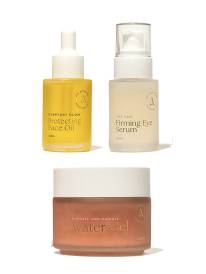Jacqui Manning National Scent-sus Interview

Jacqui Manning National Scent-sus Interview
Almost nine in ten Australians (87%), would prefer to smell good than look good according to new research revealed in the -2013 National Scent-sus' by Ambi Pur* – the brand known for eliminating odours and freshening air around the world.
The -Scent-sus' reveals the true power of the pong with two in three (66%) believing someone in their home is responsible for frequently offending the nose and 58% of those admitting to changing their daily routine in order to avoid them.
Jacqui Manning, leading Australian psychologist and Ambi Pur advisor agrees that scent is one of the most powerfully evocative tools when it comes to making a good impression.
'It seems Australians are very in tune with the powerful nature of scent and how it can make us feel. After all, you can close your eyes but it's almost impossible not to breathe in and smell the air around you. It's no surprise then that offensive aromas are considered one of the leading causes of discomfort around the nation."
According to the research, 93 per cent think that those who frequently get their pong on must practise poor hygiene habits. The same, it seems, can be said about our homes especially in light of the finding that highlights the main reason we like the smell of freshly laundered sheets is because they smell clean (70%).
Even though 98% of Australians feel uncomfortable when visiting a home which smells, only one in two (54%) of us have the guts to confront our wonderful, but smelly mates. Of the confronters, 55 per cent are likely to be men, with only 45 per cent of women brave enough to -smell and tell'.
'Smell is so closely linked with emotion because our brain structure puts our -smelling' nerve (the olfactory nerve) directly next to parts of the brain that process emotion and memory. This is why people are naturally drawn to homes that smell like things that create the sensation of comfort, nourishment, and cleanliness, or bring back positive childhood memories" said Manning.
'Much like the key to a man's heart being through his belly, the Ambi Pur National Scent-sus proves the key to a happy home is through the smell of food – a finding that doesn't surprise me given food is a way we show nurturing, love and connection," said Manning.
The Ambi Pur National Scent-sus revealed that food is our favourite category of smell (45%), with 64 per cent of us associating food smells, such as a roast dinner, with warmth and comfort, and another 61 per cent declaring it makes the home feel more homely.
Of all the food smells in the home, coming out on top was the age old roast dinner in the oven (41%) and freshly brewed coffee (23%) – smells that psychologist Manning points out as being closely tied to relationships, bonding, family connection and nostalgia.
Of all the iconic Aussie smells, the one we resonate with the strongest is Eucalyptus (46%). Not only does it makes us feel relaxed (56%), positive (36%), energised (33%) and happy (31%) at home, it's also likely to make us remember our holidays (37%) or childhood (35%). Other popular Australian smells were BBQ aromas (24%) and Vegemite (15%).
BBQ aromas are more likely to invoke memories of family (65%) and friends (59%) while Vegemite was found to make people feel nostalgic towards their childhood (60%).
Other findings from the Ambi Pur National Scent-sus include:
Gen Y is vainer than older generations, being more likely to choose to look good and smell bad (23%) compared with 10 per cent of Gen X and only 7 per cent of Baby Boomers.
In an ironic twist, Gen Y is also most offended by bad smells caused by others (75%) compared to 67 per cent of Gen X and 58 per cent of Baby Boomers.
The majority (77%) agree that scent is what attracts other people. Women (81%) are more likely to agree that scent attracts other people than men (74%).
While men are more likely to like food smells, women are twice as likely as men to find the smell of freshly washed sheets appealing (21% to 10%).
Women in family households (71%) are more likely than men (62%) to notice the smells left by others, especially bodily odours (39%) and dirty washing (32%).
Interview with Jacqui Manning
Question: Can you talk about how Australians perceive certain smells within the home?
Jacqui Manning: People like their homes to smell clean and can feel very self-conscious if they think people notice bad smells, such as garbage, rotten food etc.
Question: How does our psychological responses change as we experience different smells around the home?
Jacqui Manning: Our sense of smell is very much linked to where we process our emotions in our brains, and also how we process memories, so the smell of something can quickly take us straight back to an experience or memory. This can be both positive and negative, so to feel happier, it's a great thing if we can 'breathe happier'!
Question: Commonly, what do most Australians hope there home smells like?
Jacqui Manning: Australians love the smell of food the most, with roast dinners coming out on top. This is both because roasts are yummy, but they also create a positive experience of connection, family, feeling happy as kids etc. People also love the smell of BBQs and even vegemite!
Question: What do you believe is the behind the perception that most Australians prefer that their house smell good rather than look good? Is this a cleanliness issue?
Jacqui Manning: We are primitive beings and bad smells have always signified that something could be unhealthy for us - e.g. food poisoning used to kill people more than it does in our modern world, so that retching reaction to off food is actually a survival thing. People don't want their homes to be thought of as dirty or uncared for so they are very conscious they smell OK to project that perception.
Question: How can we make our home smell better?
Jacqui Manning: Keep it clean; use sprays that eliminate bad odours (such as Ambi-Purs sprays) as there isn't much you can do about bathroom smells except to find a product to eliminate them!
Question: Why do you think that Gen Y is vainer than older generations, being more likely to choose to look good and smell bad?
Jacqui Manning: I think because they've grown up being very visual having digital photos and videos accessible and YouTube etc.
Question: Why do you believe scent is one of the most powerfully evocative tools when it comes to making a good impression?
Jacqui Manning: Because it is something you can't switch off - if you see something offensive you can look away, but you can't turn off your nose! Also because of how smell works in our brain with emotion and memory, it becomes very powerful.
Question: How do memories and scents work together to create a homely environment?
Jacqui Manning: As mentioned, the brain structure works this way - find smells that you love and that take you back to happy places and you will instantly feel better/calmer/happier.
Question: What surprised you most about the 2013 National Scent-sus' by Ambi Pur?
Jacqui Manning: That most people do care more about their smell than their looks - I assumed the spread would be more even but it was overwhelmingly in favour of smelling good.
Interview by Brooke Hunter
MORE





